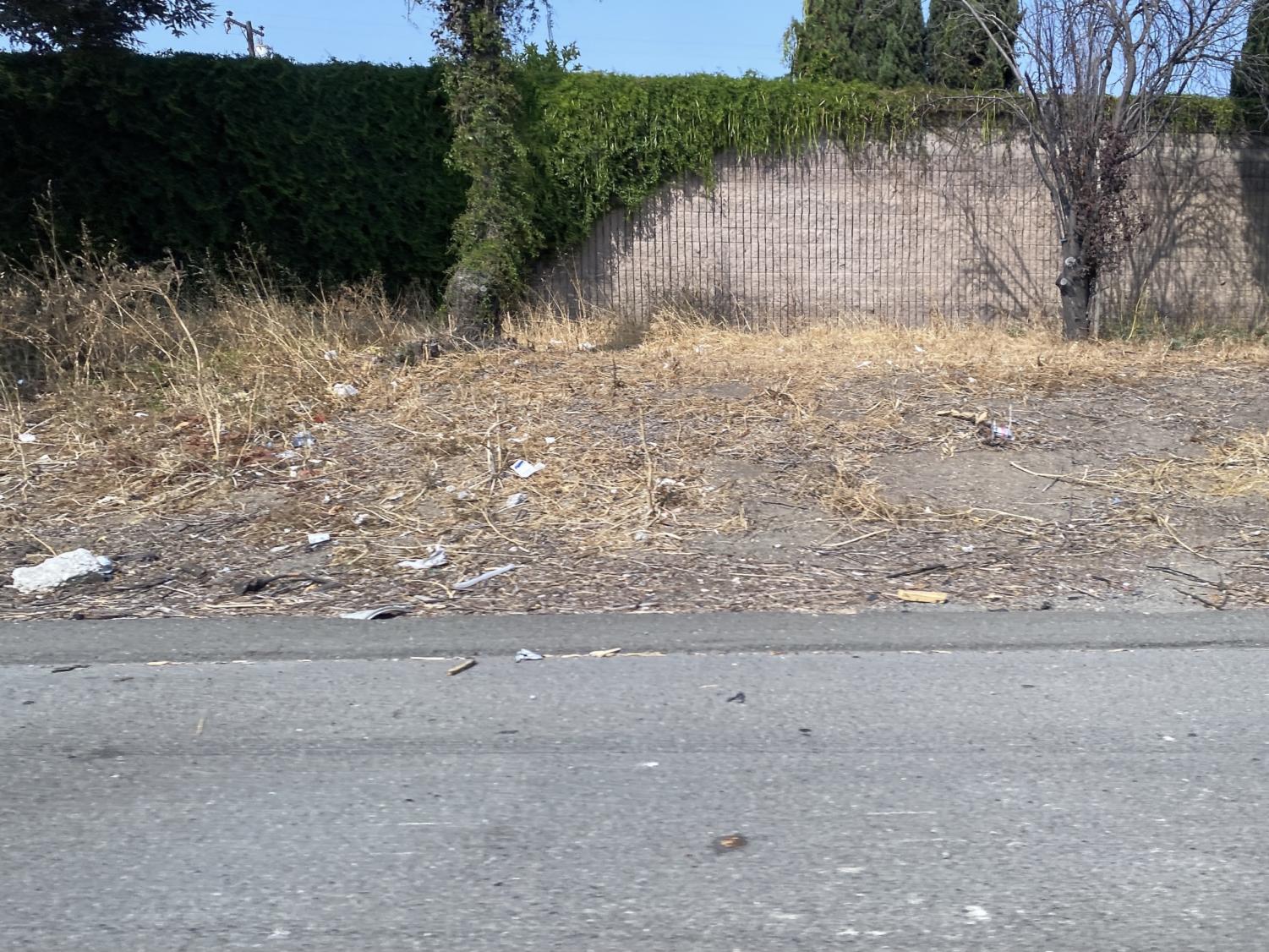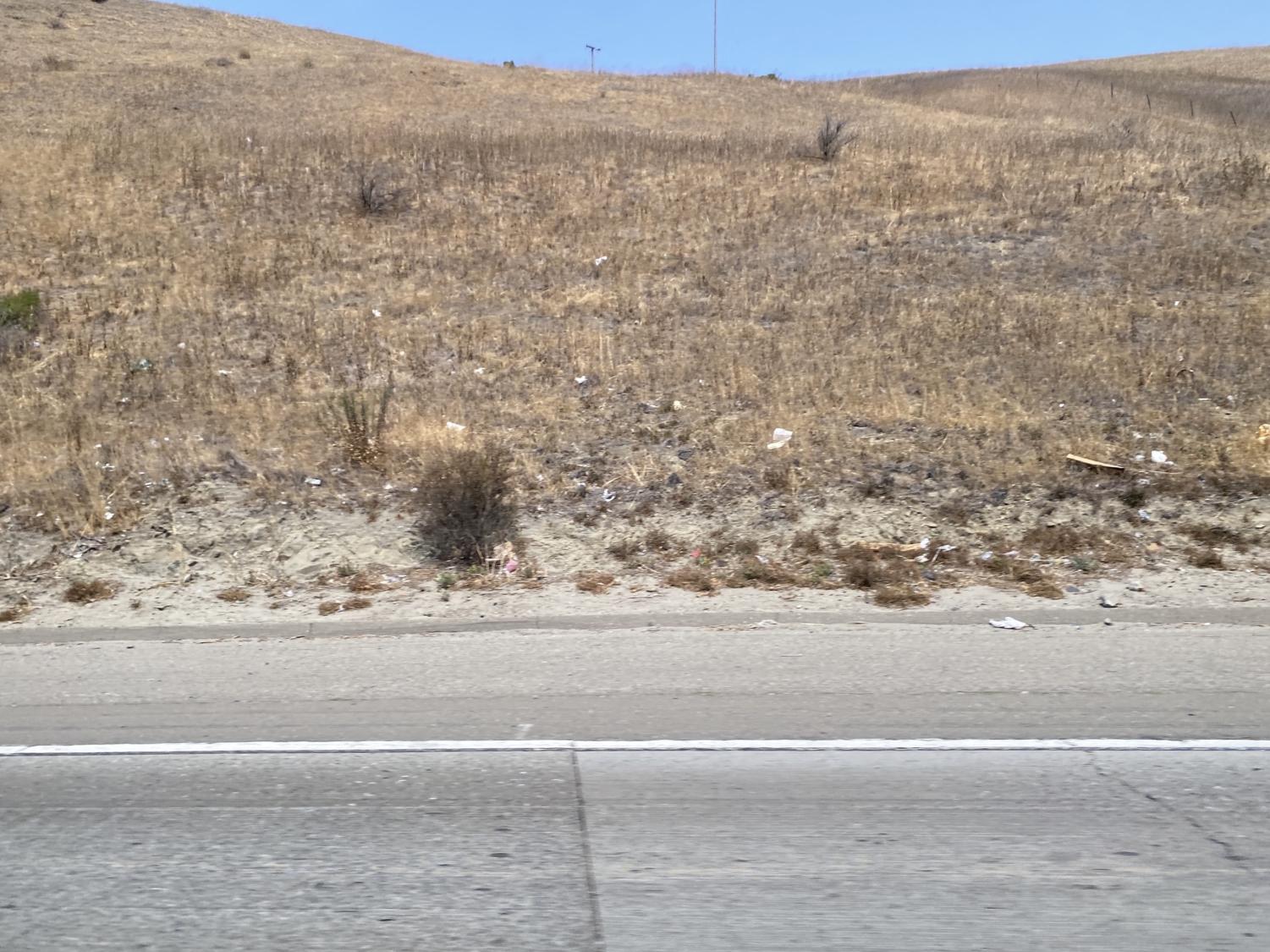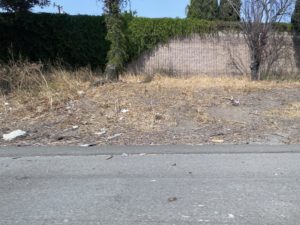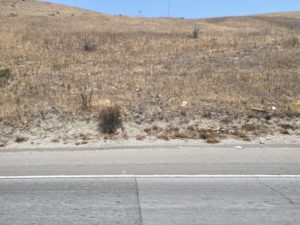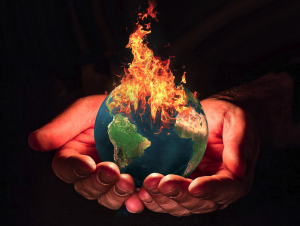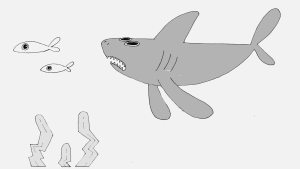Littering on freeways brings harm back to humans
October 25, 2021
Leaning my head on the car window on a sunny day, and occasionally looking out at the freeway, I didn’t immediately recognize what it was on the shoulders of the freeway. Looking closely for several miles, all I felt was shock and disbelief at the amount of trash on the shoulders of the freeway, littering both the sides of the freeway. Littering has always been in my mind, but all I thought about was how it harmed the environment, not how it would come back to humans.
Littering is defined as dumping trash in any public or private place without the permission to do so by the landowner or the people on that land. Littering on the freeway is illegal in the US, and can be punished with a $250-$3000 fine and may be required to participate in roadside litter pickup for eight hours, depending on the number of offenses. While litter is most known to create environmental impacts, it can come back to humans as a more severe impact.
Officer Tyler Hahn, an officer from California Highway Patrol (CHP) in Dublin, California, says that littering has resulted in 2300 tickets throughout the state in 2020, and that the CHP had partnered with the California Department of Transportation (Caltrans) in 2020 to help clean up the litter on the freeways.
“Littering is just rude, it makes our roadways look like trash cans, and that’s not what any of us want to look at as we’re driving on the highway,” says Officer Hahn. “[We decided to help Caltrans] so we can educate the public on things that can happen when people litter, like potential traffic collisions.”
People naturally try to avoid trash, especially if it is something like a load from a pick up truck, or Styrofoam flying from the back of a not secured truck, and end up sharply turning and colliding with other cars, causing traffic accidents, he explained. On average, there are about 25,000 car accidents that involve littering and trying to avoid it, and about 80-90 people die yearly because of it.
While the litter can cause collisions from the driver’s attempt to avoid the trash, cleaning up after litter costs a lot. The state of California spent $1.5 billion cleaning up after the trash on the freeway near the University of South California in May, 2021. Furthermore, the cost to pick the trash up is not included in the $5.4 billion that is saved for road maintenance, when it costs much more money to clean up the shoulders compared to the amount needed for road maintenance. Most of the money for road maintenance comes from taxes, meaning that littering only costs more in taxes, and the taxes are being wasted on trying to clean this trash up.
People tend to litter because they know that there is someone to clean up after them, and may think that littering is not the problem behind the environmental issues, and argue that picking the trash up isn’t their job. While it is true that there are people cleaning up after them, it is rude to simply toss things out of the window and cause them to take time out of their day to clean up after careless people. In addition to the environmental impacts, everything we do to the environment comes back to us, whether it be that we clean it up, or we face environmental problems.
Arshed Syed, a volunteer for the Adopt-a-Highway road clean up, has been helping to clean a two mile span of the Interstate 680 North, from the Bollinger Canyon exit and the Crow Canyon exit.
“What you think is not your job ends us being a job for other people, and not everyone likes to clean up after others,” says Syed. “At the end there’s a lot of issues that are caused by the trash, such as the trash attracting the animals to eat through it.”
A person’s decision made in a second to throw a piece of trash out of their window from a car causes the time of the roadside clean-up organizations such as Caltrans, who are on the shoulders often to clean up, and those who participated in Adopt-a-Highway to be spent trying to clear the trash of the environment. 24 billion pieces of trash was picked up from the shoulders of the freeway in 2020 alone.
Adopt-a-Highway is a campaign program that allows various companies to “adopt” a span of two miles on a highway, and has them promise to clean up after the litter in those two miles at least four times a year.
Yusuf Bello, a current college student, who volunteered to help clean the shoulders before quarantine, says that there was always more trash than expected, usually around 10 to 15 full trash bags after cleaning up the two miles. He additionally states how a lot of the trash is not things like paper, which can easily fly out of an open window by accident, but heavier things that were obviously intentionally thrown out.
“I don’t know if it’s just us as residents being used to seeing that amount of trash, but it really fazes us. There’s always more than expected,” says Bello. “There were always things that you don’t expect to see on the side of the freeway, like diapers, wheels, and coupons.”
Syed also states that there are some things, such as bottles with urine in it, that get thrown out and cannot be picked up because it is classified as toxic waste. He also explains how the trash pieces are usually not big pieces, but small pieces of trash that usually end up piling up on one another to cause a bigger pile of trash.
It is thanks to these volunteers that our roads are still open and drivable, but the public continues to throw litter out of their windows, thinking that they’re clean simply because they have never seen the amount of litter getting picked up. In reality, the freeway looks clean thanks to Caltrans and the volunteers who work tirelessly to maintain a clean highway for the people to use.
If we continue to throw trash on the roads and increase the amount of trash, the efforts of both Caltrans and the volunteers will not be enough to maintain clean roads. As the amount of trash increases, the roads will become undrivable, and many of the things that we do now that require driving on the roads, such as transporting goods and getting to workplaces, would be impossible. If everyone thinks one more time before deciding to toss something out of a window, then it will save the time of volunteers and workers, save the money being used to clean up, prevent collisions, and will still maintain the clean roads we are maintaining now.
“It takes us four whole weekends throughout a month to clean up the entire two mile stretch with four to six people,” says Syed. “It’s the carelessness of folks that’s most frustrating, it’s frustrating to discover plastic bottles or bags that were carelessly thrown out.”
“As individuals, we need to give a little bit of ourselves so that our community gets better,” says Bello. “But if we all were to sort of be negligent, without giving back to our community, [the freeway] would be an utter mess and no one would be able to drive on it.”

